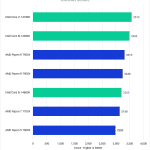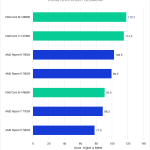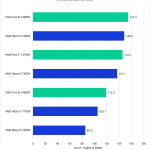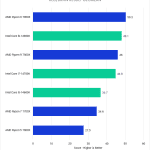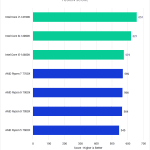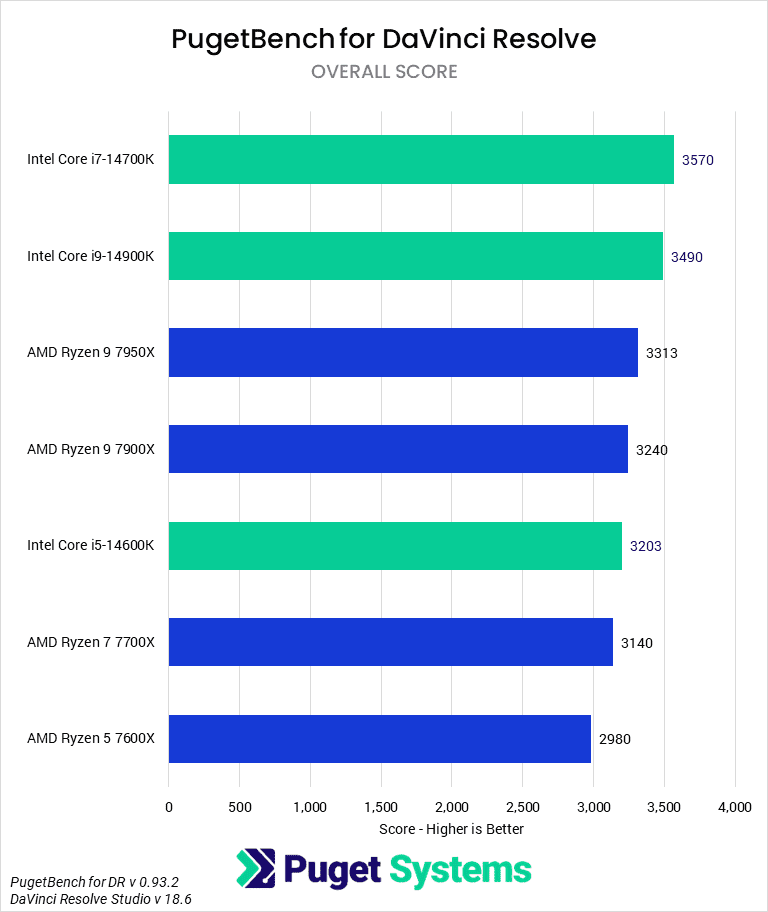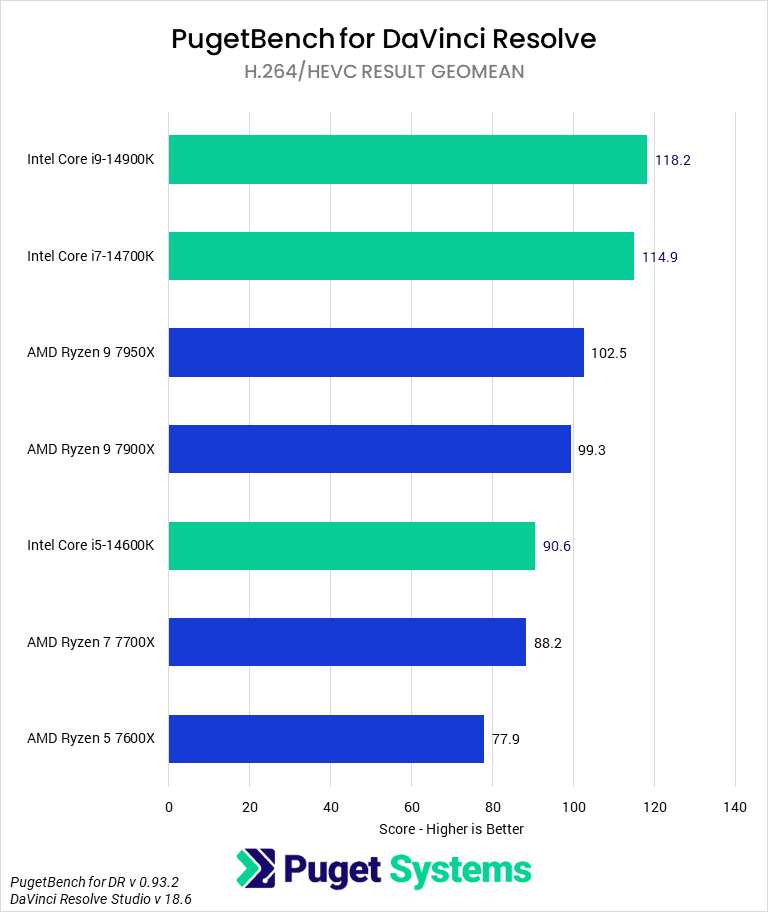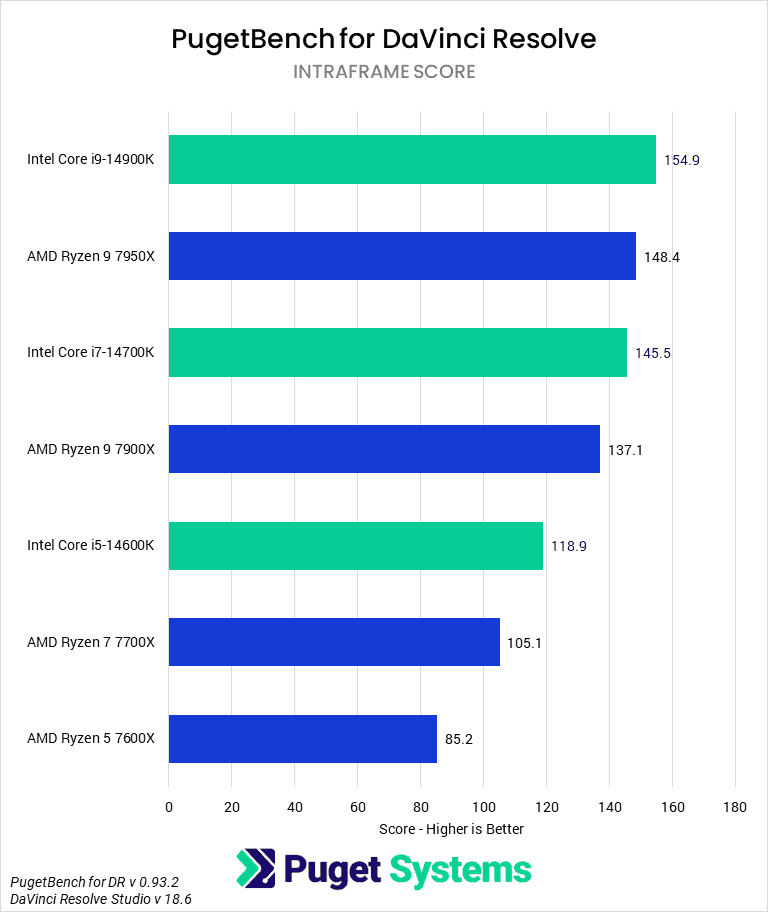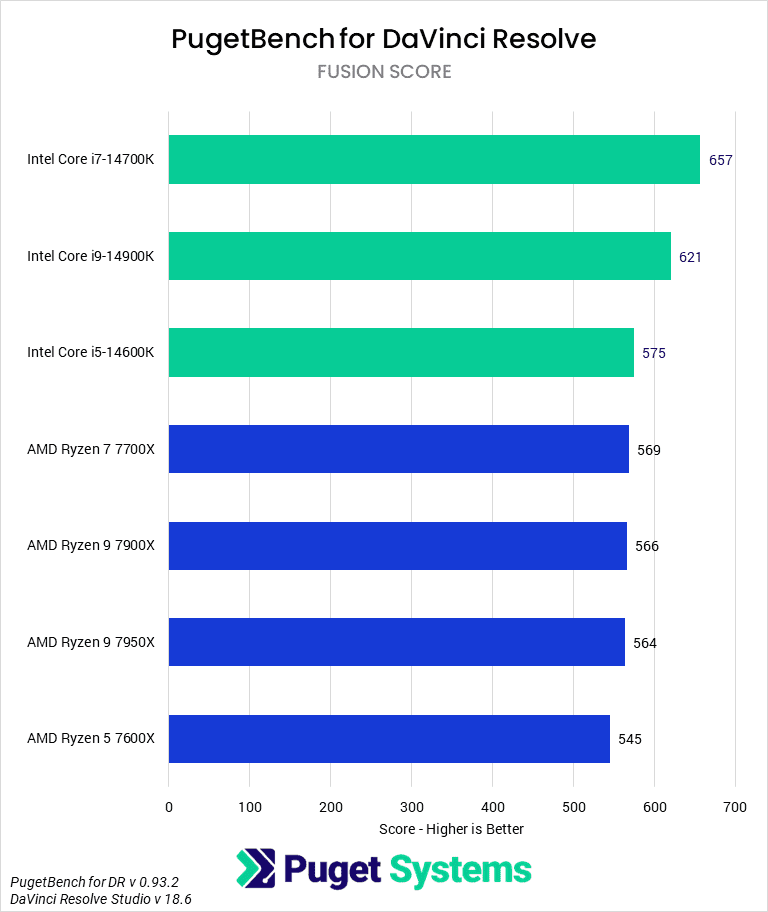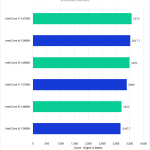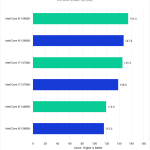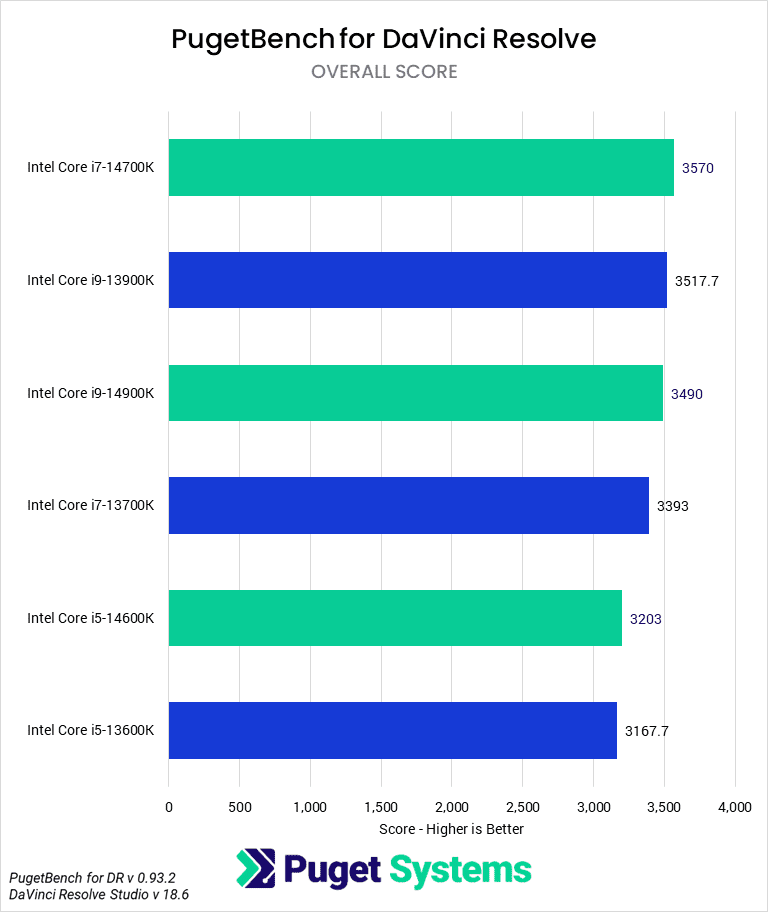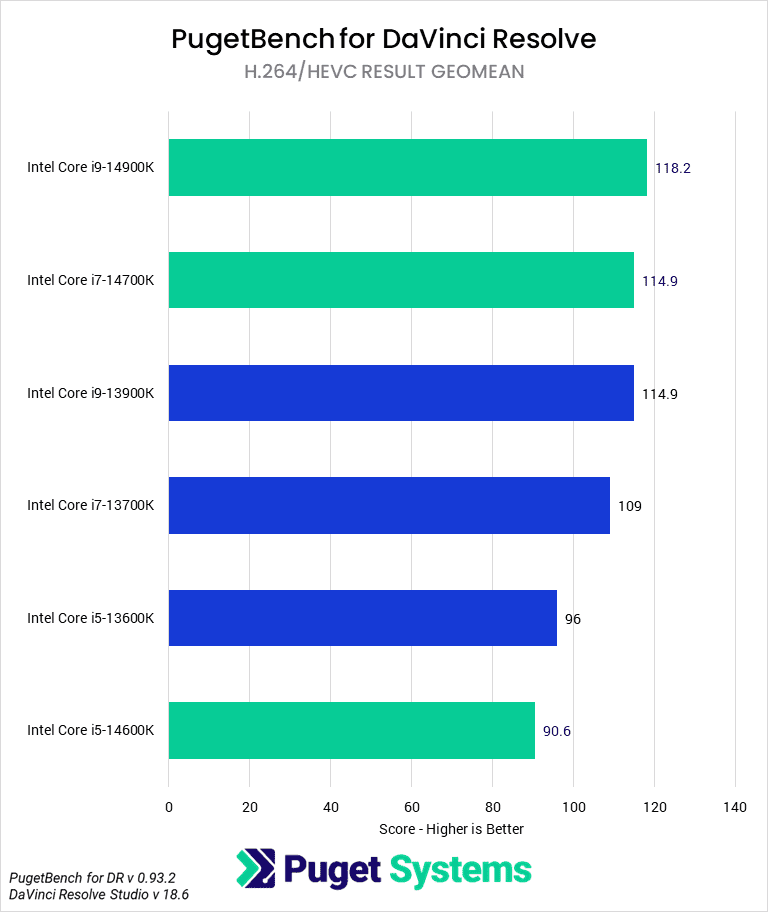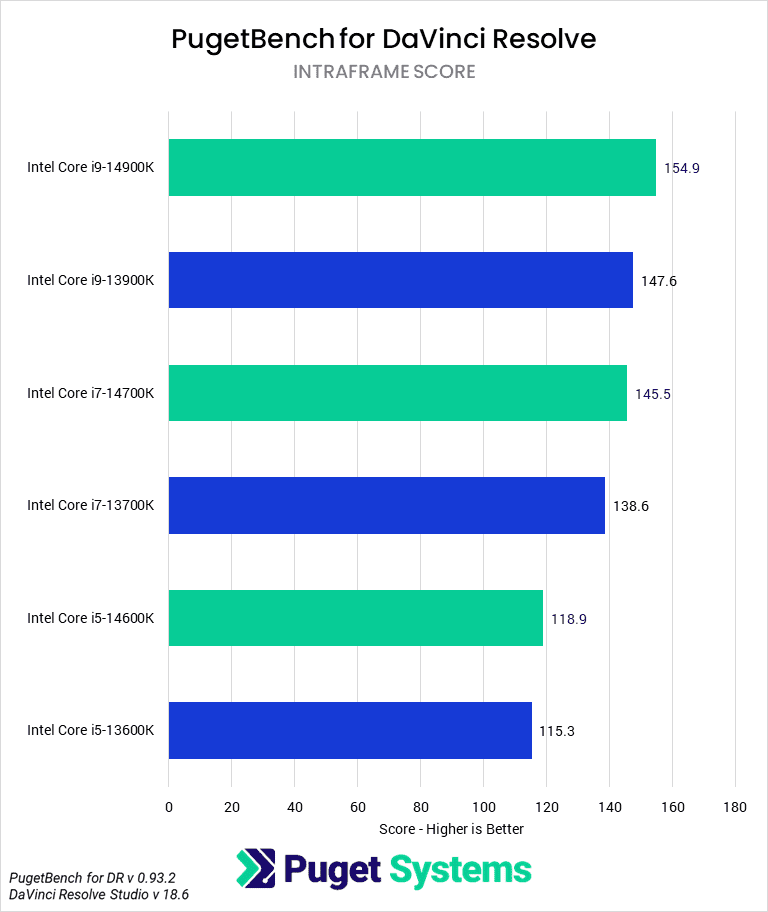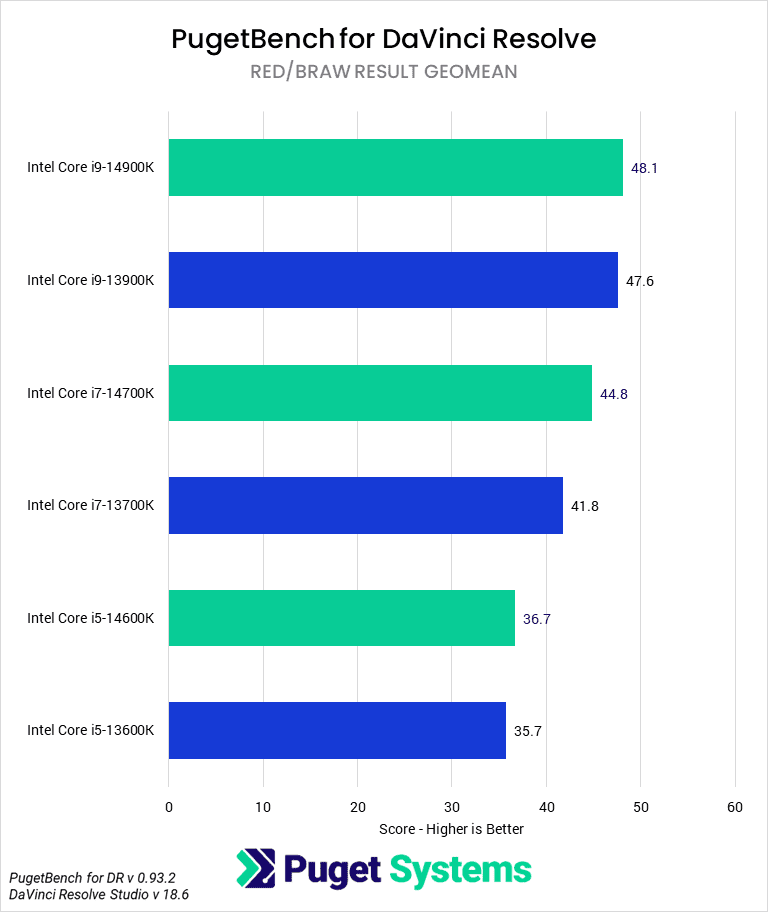Table of Contents
TL;DR: Intel Core 14th Gen performance in DaVinci Resolve Studio
With the new Intel Core 14th Gen processors, Intel holds a small ~8% performance lead over the AMD Ryzen 7000-series processors. The performance gap is even smaller if you are working with intraframe or RAW codecs, but slightly larger when Quick Sync comes into play for LongGOP codecs like H.264/HEVC.
Interestingly, Intel’s performance advantage in DaVinci Resolve is actually almost completely independent of the 14th Gen launch. Between the new processors and the previous 13th Gen, we only saw a few percent difference in most cases. So, while it is good for Intel to maintain their lead in this type of workflow, the 14th Gen processors are largely a launch that DaVinci Resolve users can ignore.
Introduction
Today, Intel is fully launching their latest Intel Core 14th Generation processors. Building upon the previous two generations of Intel Core chips, these processors have a hybrid architecture with both “P” (Performance) and “E” (Efficient) cores and are socket-compatible with both 12th and 13th gen motherboards. These new processors are largely a fairly standard refresh of the 13th gen models, although the i7 variant (Core i7-14700K) features four additional “E”-cores over the 13700K which should help in heavily threaded workloads.
In general, Intel has a lead over AMD for DaVinci Resolve due to the “Quick Sync” technology that is found on their Core CPUs with integrated graphics. Most modern GPUs from NVIDIA or AMD can be used for hardware decoding of LongGOP codecs, but Intel Quick Sync tends to be a bit faster and gives you access to a wider range of hardware decoding support of HEVC in particular. That doesn’t mean that AMD Ryzen CPUs can’t be used or perform well, but it is worth evaluating your workflow to determine if this type of brand-specific technology will impact you.
In this article, we will examine how these new processors perform specifically in DaVinci Resolve Studio. Not only do we want to see how the performance has improved from the previous 13th Gen processors, but we also want to see if that changes whether Intel or AMD will give you the best performance for your dollar. Because there are so many CPUs to examine, we will break our analysis down into Intel vs AMD (Intel Core 14th Gen vs AMD Ryzen 7000) and performance versus the previous generation (Intel Core 14th Gen vs Intel Core 13th Gen).
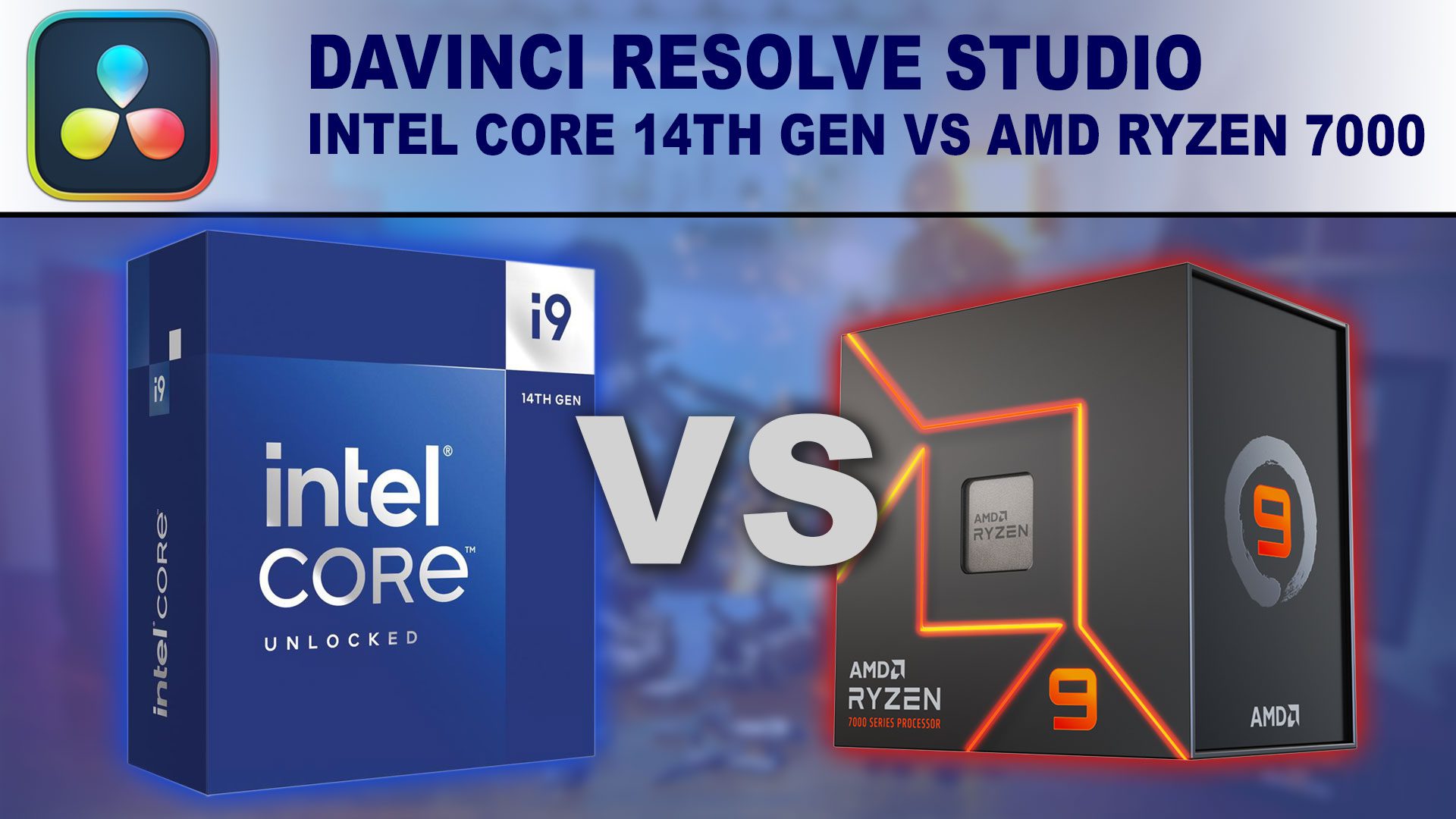
If you want to read more about the new Intel 14th Gen Core CPUs and what separates them from the previous generation, we recommend checking out our main 14th Gen Intel Core Processors Content Creation Review article. That post includes more detailed information on the CPU specifications and an overview of testing results for a range of other applications, including Photoshop, Lightroom Classic, Premiere Pro, After Effects, Unreal Engine, Cinema 4D, Blender, and V-Ray. Although these CPUs, like the previous generation, can draw a large amount of power, we are currently disabling any features that run the tested CPUs outside of manufacturer specifications. We are also running the CPUs at the “standard” power profiles, as this is how we currently ship out systems. For more information about the impact of the power profile and how larger coolers affect the performance of the CPUs, you can refer to our Power Draw and Cooling: 14th Gen Intel Core Processors article.
Raw Benchmark Data
Although our benchmark scores represent a balanced workload within their respective applications, we like to include individual results that you can examine. If there is a specific task or area where you do most of your work or that represents the largest time-sink, focusing on those results will let you know in a much more detailed way how these components could influence your work.
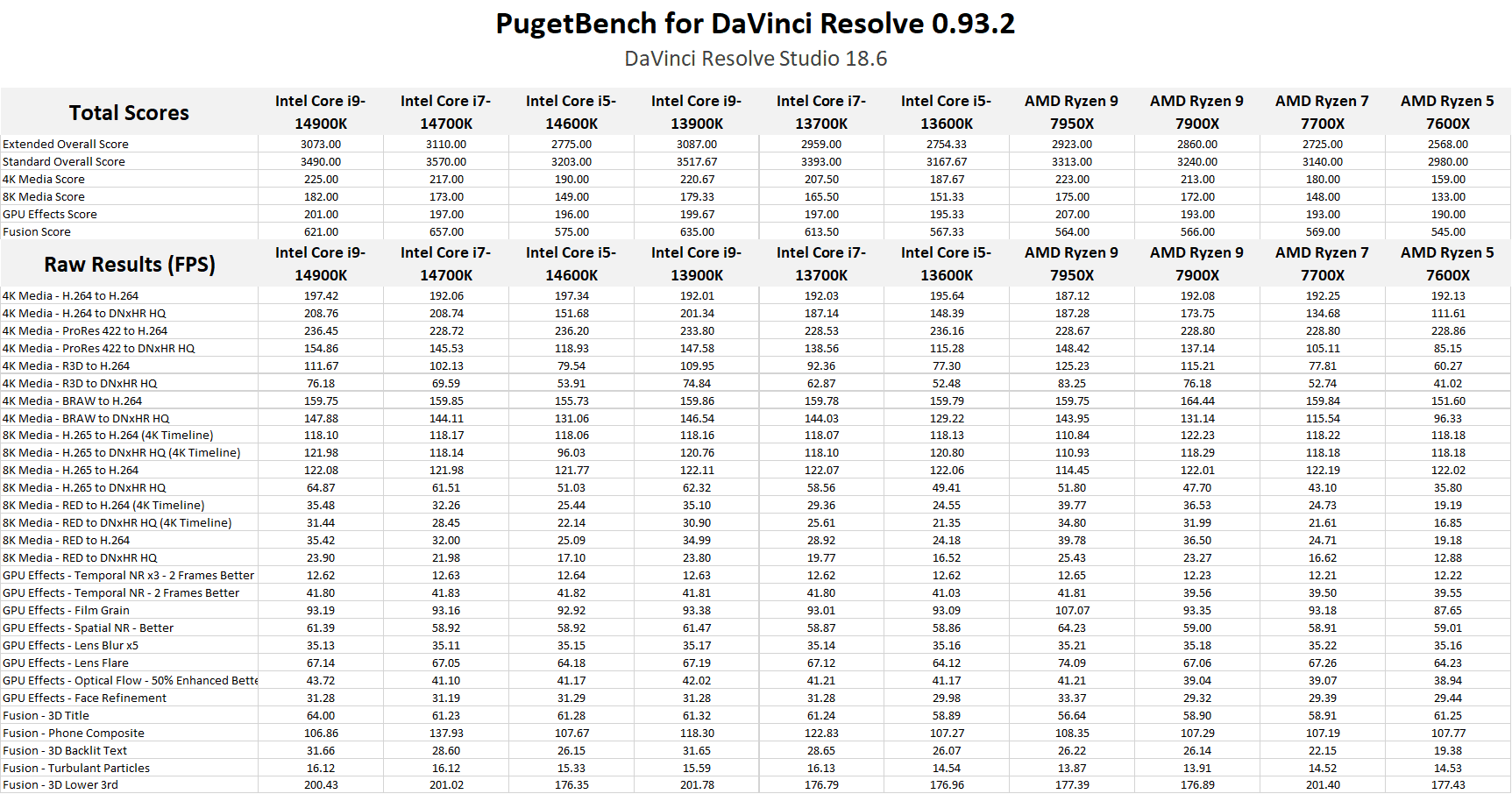
Intel Core 14th Gen vs AMD Ryzen 7000 for DaVinci Resolve Studio
To start off our performance analysis of the 14th Gen processors, we want to look at how performance compares to the AMD Ryzen 7000-series CPUs.
Overall, we are looking at a remarkably consistent ~8% performance lead with the new 14th Gen processors compared to AMD. Intel’s lead is larger (to the tune of ~15%) for LongGOP codecs like H.264 and HEVC, where Intel Quick Sync gives these processors a boost, and smaller for Intraframe and RAW codecs where the higher number of full performance cores helps AMD close the gap. Fusion is another area where Intel has a strong lead of about 10% for the 14900K and 16% for the 14700K.
Oddly, the 14700K beats the 14900K by a measurable amount for the Fusion tests in particular, which allows it to edge out over the 14900K in terms of the Overall Score. This is actually something we have seen in a few of our other tests like Unreal Engine, and it appears to be a real result – not just a run-to-run variation or test aberration. For most users, the higher performance of the 14900K in the other tests makes it a slightly faster option than the 14700K, but these two CPUs are extremely close in performance.
Intel Core 14th Gen vs Intel Core 13th Gen for DaVinci Resolve Studio
While Intel holds a performance lead in DaVinci Resolve with their new 14th Gen processors, this is really just an extension of the existing lead they already enjoyed with the previous 13th Gen processors. The only CPU that saw more than a percent or two performance improvement was the Core i7-14700K – in large part due to its curiously high results in Fusion. This could be due to the additional E-cores over the 13700K, but Fusion is fairly lightly threaded, making that unlikely. More likely is that this result is valid (we re-tested multiple times to make sure it was not a fluke) and that there is a BIOS/driver/software bug that is holding back the Core i9-14900K from seeing a similar gen-over-gen improvement for those tests.
How well do the Intel Core 14th Gen CPUs perform in DaVinci Resolve?
With the new Intel Core 14th Gen processors, Intel holds a small ~8% performance lead over the AMD Ryzen 7000-series processors. The performance gap is even smaller if you are working with intraframe or RAW codecs, but slightly larger when Quick Sync comes into play for LongGOP codecs like H.264/HEVC.
Interestingly, Intel’s performance advantage in DaVinci Resolve is actually almost completely independent of the 14th Gen launch. Between the new processors and the previous 13th Gen processors, we only saw a few percent improvement in most cases. So, while it is good for Intel to maintain their lead in this type of workflow, the 14th Gen processors are largely a launch that DaVinci Resolve users can ignore.
Bear in mind that the benchmarks presented in this article are for DaVinci Resolve Studio and that performance can vary dramatically between different applications; each software will utilize the available hardware differently and so be impacted in a unique way by hardware changes. If you use other software packages in your workflow, we recommend checking out our 14th Gen Intel Core Processors Content Creation Review article, which includes results and links to in-depth testing for a range of other applications, including Photoshop, Lightroom Classic, Premiere Pro, After Effects, Unreal Engine, Cinema 4D, Blender, and V-Ray.
Finding the perfect workstation doesn’t have to be complicated. Explore our solutions page for a curated selection of recommended systems for a multitude of applications and workflows, or visit our custom configuration page if you already know the ideal hardware for your needs. If you need assistance with tailoring a system to a unique workflow or have any other questions, we encourage you to reach out to our dedicated technology consultants.


